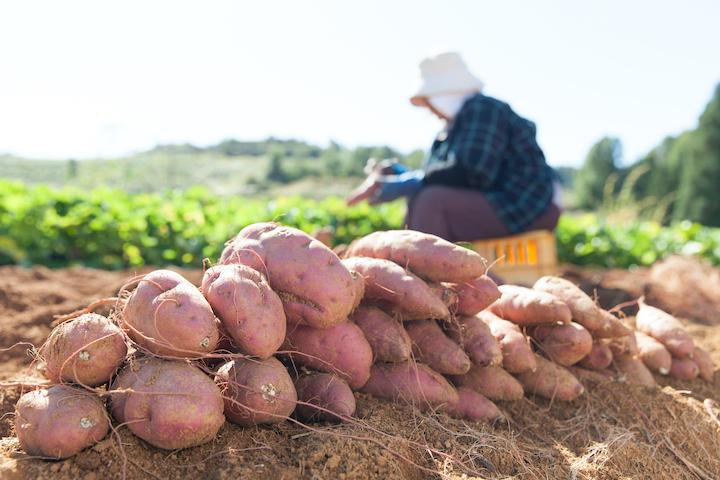
Korean agriculture: Dependence on Japan is a big problem: 94% of oranges are Japanese varieties
-From seedlings to farm equipment-
Ministry of Agriculture, Forestry and Fisheries of Japan:
In July 2020, the Ministry of Agriculture, Forestry and Fisheries selected 737 varieties, which are important export items, and conducted a survey.
China-Korea / Internet sales:
Rice,
Strawberry,
sweet potato,
Citrus,
Apple,
Grapes,
Tea, etc.
Conducted seedling surveys for sale on the Internet in China and South Korea.
It turned out that “the names registered in Japan are 36 varieties.”
Unauthorized cultivation in South Korea:
Sweet potato “Beni Haruka” developed by NARO in November 2008
It has become clear that “Beni Haruka” is cultivated in Korea without permission.
“Beni Haruka”:
“Beni Haruka” occupies 40% of the Korean sweet potato cultivation area.
Korean farmer:
It is believed that a Korean farmer “when They visited the Japanese production area, brought back the seed potatoes without permission and leaked them.”
In Korea, sweet potatoes are used as ingredients for chapchae and dak-galbi.
Japanese sweet potatoes:
Japanese sweet potatoes are popular in Asia and Canada.
The value of exports has increased more than 10 times in the last 10 years.
South Korea has also begun exporting Japanese varieties of sweet potatoes.
However, it is difficult to question illegality under international law.
Dependence of Korean Agriculture on Japan:
Korean agriculture is extremely dependent on Japan.
Mandarin oranges: Japanese varieties of mandarin oranges account for 94%.
Strawberries: Developed in S.Korea by crossing Japanese varieties of strawberries.
Apple: Japan’s’Fuji’is the most produced, and Japan’s’Tsugaru’ is also the third most produced.
Pears and peaches: The largest production of Japanese varieties, which are indispensable for Korean festivals.
Onions: Japanese varieties dominate Korea’s production from 1st to 3rd.
Korean farm equipment:
Korean agricultural machinery is also extremely dependent on Japan.
“Agricultural Machinery Purchase Support Project Loan Results” compiled by the National Agricultural Cooperative
Of the agricultural machinery sold in South Korea from 2013 to May 2018
13.6% of tractors,
40.5% of rice transplanters,
29.9% of the combine is imported machinery.
Most of them were made by Yanmar, Kubota, and Iseki.
Among them, 26.1% of rice transplanters are made by Yanmar.
Japanese farm equipment manufacturer:
The Japanese manufacturer’s market share in South Korea is 30%.
50% of Korean agricultural machinery engines are made in Japan.
Automatic transmission and electrical technology,
The core component of the integrated control system is
Made in Japan accounts for 60-100%.
There are also Korean farm equipment made from 100% Japanese parts.
Strengthening Japan’s export control:
S.Korea considered switching to products made in the United States and Germany.
However, “In addition to increasing transportation costs, if you change the engine, you will have to redo the internal design of the machine.”
Newsweek Japan version
https://www.newsweekjapan.jp/stories/world/2021/03/post-95941.php